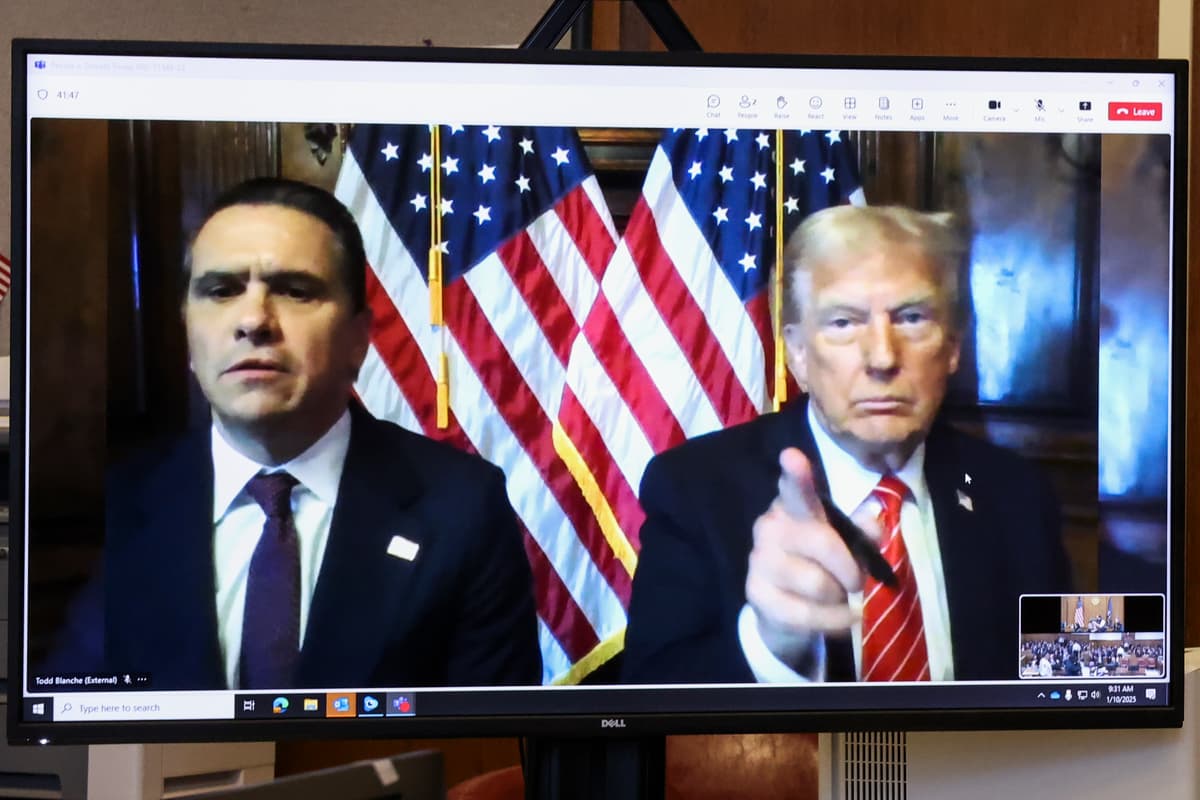Trump Is Sentenced in Hush-Money Case: No Prison Time or Even Probation, But He’s Now a Convicted Felon
Judge Juan Merchan released the president-elect on an ‘unconditional discharge’ which means he receives no punishment for the 34 felony convictions.

President Trump was released on an “unconditional discharge” on Friday morning at a sentencing hearing for his conviction in the long running hush-money case, and became the first ever president in the U.S. history to be sentenced in a criminal case and become a convicted felon. Trump did not attend the hearing in person. He appeared virtually from Florida. He can now appeal the conviction and has sworn to do so.
Please check your email.
A verification code has been sent to
Didn't get a code? Click to resend.
To continue reading, please select:
Enter your email to read for FREE
Get 1 FREE article
Join the Sun for a PENNY A DAY
$0.01/day for 60 days
Cancel anytime
100% ad free experience
Unlimited article and commenting access
Full annual dues ($120) billed after 60 days

